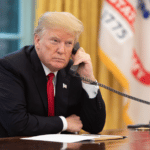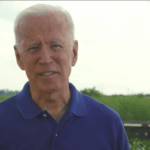


Donald Trump's recent comments about reclaiming control of the Panama Canal for the United States have triggered a wave of international outcry, eliciting strong responses from Panama and several of its allies.
Trump's declaration that the Panama Canal's management is unfair has sparked a significant backlash from Panamanian officials and various Latin American leaders who are terrified of Trump's return and promises to put America first once again.
The People's Dispatch reported that during a speech at AmericaFest in Phoenix, Arizona, organized by the conservative group Turning Point USA, Trump described Panama’s administration of the canal as a "complete rip-off" and expressed frustrations over the fees charged for its use.
He went as far as to threaten a U.S. demand for its return if the fees were not adjusted. Trump also mentioned, that the canal was a gift to Panama from the United States, a statement that further inflamed tensions.
Handing over control of the most important canal in the world to Panama was a mistake that Trump is determined to rectify, but he will face heavy resistance in reclaiming one of America's great pieces of infrastructure.
José Raúl Mulino, Panama's president, quickly responded, condemning Trump’s comments and reinforcing Panama's ownership of the canal.
He characterized the canal as a critical symbol of Panama’s sovereignty and independence, despite the fact that Panama did not build the canal. Mulino clarified that tolls are determined through transparent processes considering various international factors.
Mulino emphasized that "every square meter" of the canal would remain under Panamanian jurisdiction, affirming that the country's sovereignty was non-negotiable. He reiterated the deep historical connection Panamanians have with the canal, a sentiment that unites them despite other differences.
In a show of unity, the National Union of Workers of the Construction and Similar Industries (Suntracs) also criticized Trump's stance, reflecting Panama’s broader societal consensus in defense of its territorial integrity.
The Panama Canal was under U.S. control until its return to Panama in 1999, a transition established by a crucial agreement between then-Panamanian leader Omar Torrijos and U.S. President Jimmy Carter. This transfer marked the culmination of decades of Panamanian struggle for autonomy over the canal, making Trump's remarks particularly contentious.
Adding to the complexity of the situation, Trump's comments coincided with the anniversary of the U.S. invasion of Panama, an operation that drew international scrutiny at the time for its impact and loss of lives. The incident further underscores the sensitive nature of U.S.-Panama relations.
The backlash was not confined to Panama, as regional leaders also voiced their support for Panama's stance. Mexican President Claudia Sheinbaum publically showed solidarity with Panama, reaffirming that the canal rightly belongs to the Panamanian people.
Sheinbaum took the opportunity to address broader topics, noting the contradictions in Trump's migration policies. Her comments highlighted the need to address underlying causes of migration rather than resorting to hostile rhetoric.
Another Latin American leader, Gustavo Petro, who holds Panama's interests dear, pledged his support in defending Panama's sovereignty. He suggested that if the U.S. was unwelcoming, Latin American nations must strive for prosperity within democratic frameworks.
The controversy surrounding Trump’s remarks has highlighted potential challenges for U.S. relations with Latin America under his leadership.
Trump's rhetoric has brought back memories of U.S. interventionist policies in the region, raising alarms among Latin American leaders.
Critics argue that these comments could potentially shift the focus away from fostering stronger diplomatic and economic ties, potentially undermining years of progress in U.S.-Latin America relations. These tensions serve as a reminder of the complex historical and political ties between the U.S. and its southern neighbors.
The diplomatic landscape is likely to be tested as both Panama and its allies seek to maintain their sovereignty against perceived threats. The upcoming months may further reveal how the U.S. administration navigates these intricate dynamics.



